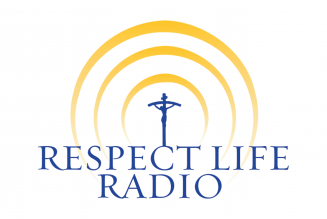
“What books should I give an atheist?” a friend asked me. It wasn’t an easy question for me to answer, because I don’t get atheism. I’m wired for agnosticism, in that “I don’t know” seems to me the best answer to most questions, barring good evidence.
Even when I was a secularish young man, I could not see how one could be so dogmatic as to become a believing atheist. The whole challenge of the idea of God is that you couldn’t know for sure what he is up to, because he has the big picture we don’t. God, if he exists, might show himself. But he might not. He might keep himself out of sight for his own mysterious reasons. It seemed ridiculously presumptuous to declare definitively that he didn’t exist.
I can’t be sure I’m being fair to the atheist, since our minds are so far apart. But I do know something about that world. This is what I wrote my friend (slightly revised).
Three Types of Atheists
The answer depends a lot on what sort of atheist your friend is. Americans and Canadians are almost always Christian atheists, meaning that the God in which they do not believe is some form of the Christian God. From what I’ve seen, self-described atheists have at least three different reactions to the Christian God.
The first rejects the idea of a God who wills the good, because the world contains so much suffering. The world is too radically wrong for any God to have anything to do with it.
That’s the classic sort, and probably the most common, but I think there are two more, which are more common than we realize, partly because if pressed many of them will trot out the Problem of Evil as an explanation, because it’s easy to say. That makes them look like the first.
The second rejects a personal God who speaks and moves in history and has many behavioral expectations for people, and who is related to corporately, through a body with its own rituals, traditions, requirements. This seems a bit small and petty for God to bother with. They’re not vexed by narrow questions of the Trinitarian life or the more obvious question of the Divinity of Christ, or even the problem of evil.
They object fundamentally to the whole idea of a God who is that close to and intimate with us. Or, more narrowly, of a God who tells them what to do, or expects them to associate with Christians and read this book and do those things. That just doesn’t seem plausible.
The third just doesn’t think about the matter at all. He enjoys the world as it presents itself to him — he’s usually successful and upper-middle class — but since he doesn’t see anything particularly good about it, nothing to indicate that it is fundamentally sound, he assumes that there is nothing behind it but randomness and accident. The world doesn’t look to him like the kind of place a God would create and support, and therefore there must not be one.
He’ll say he’s an atheist if asked, but he’s doesn’t see it as an identity and he’s not passionate about it in the way the first type is. The world is the way it is. There’s no point worrying about it, just as there’s no point in worrying that you can’t fly.
Talking to the Atheist Friend
You might begin by talking with your friend to find which type he is, and whichever type he is, what it is in particular he doesn’t believe — in God as Christians believe in him, in God as the god of particular people, and in God as mattering at all. The answer won’t always be obvious, since most people offer the standard rent-a-quote arguments, almost always versions of the problem of evil. But you should be able to suss it out.
In my experience, the second and third types will sometimes accept God as a first principle or prime mover even while calling themselves atheists, because that kind of God is almost a synonym for reality. If he exists, he’s too far away to matter. That God doesn’t make the (for them) fatal step into personality.
The first-principle God doesn’t affect them. Some become Buddhists or Unitarians, or mainline Protestants who believe Christianity a set of lovely fictional stories that symbolize deeper truths. But you can’t build on this concession apologetically, since they usually don’t want to pursue the kind of systematic development of the insight you get in Aristotle or St. Thomas Aquinas.
That said, I think atheism is generally the expression of a moral attitude more than a real intellectual conviction based on evidence thought through. The attitude may be a general “I will not serve” or a particular “I’m not going to live like that” — usually meaning “I want to sleep around,” but sometimes, “I don’t want to care about people.” They rarely come to the question without a personal commitment to one answer. To be fair, a few, like the French writer Albert Camus (one of my adolescent heroes), simply say they can’t believe, without hostility to those who can.
That may seem unfair, and in some cases it probably is. But that’s also the criticism atheists make of Christians. We have a psychological need for belief or for security, we want to be told what to do, we want to tell others what to do, we can’t live in freedom, we’re trapped in our childhoods or our institutions, and so on. They’re not necessarily wrong. People believe what they believe for a mixture of reasons, some better than others.
I’ve always thought it’s probably a bad sign that they call themselves “atheists” and not “agnostics.” It means they’re raising a war flag. They’re not hedging their bets. They’re going all in — betting the house, the car, the pension fund, granddad’s coin collection, the wife and the kids. I’d trust their claims more if they hedged their bets.
Limited Apologetics
This all means that apologetics is of limited use. You can’t start with arguments or books. The atheists in the second and third groups don’t have ears to hear. The atheists in the first group have tightly covered their ears with their hands while yelling loudly “God doesn’t exist! God doesn’t exist! Look at cancer! Look at war! God doesn’t exist!”
What one hopes for is enough openness that they’ll talks with friends who gently point to the difference belief and unbelief make, and that they have life experiences that open them to the possibility of belief in God (that there are no atheists in fox holes is an exaggeration but not untrue), and that the Holy Spirit will move them to stop resisting belief and actually examine the question. Something has to bring them to want to hear.
It’s only at that point that apologetic materials might help. And it’s only at that point that you know what materials to use.








